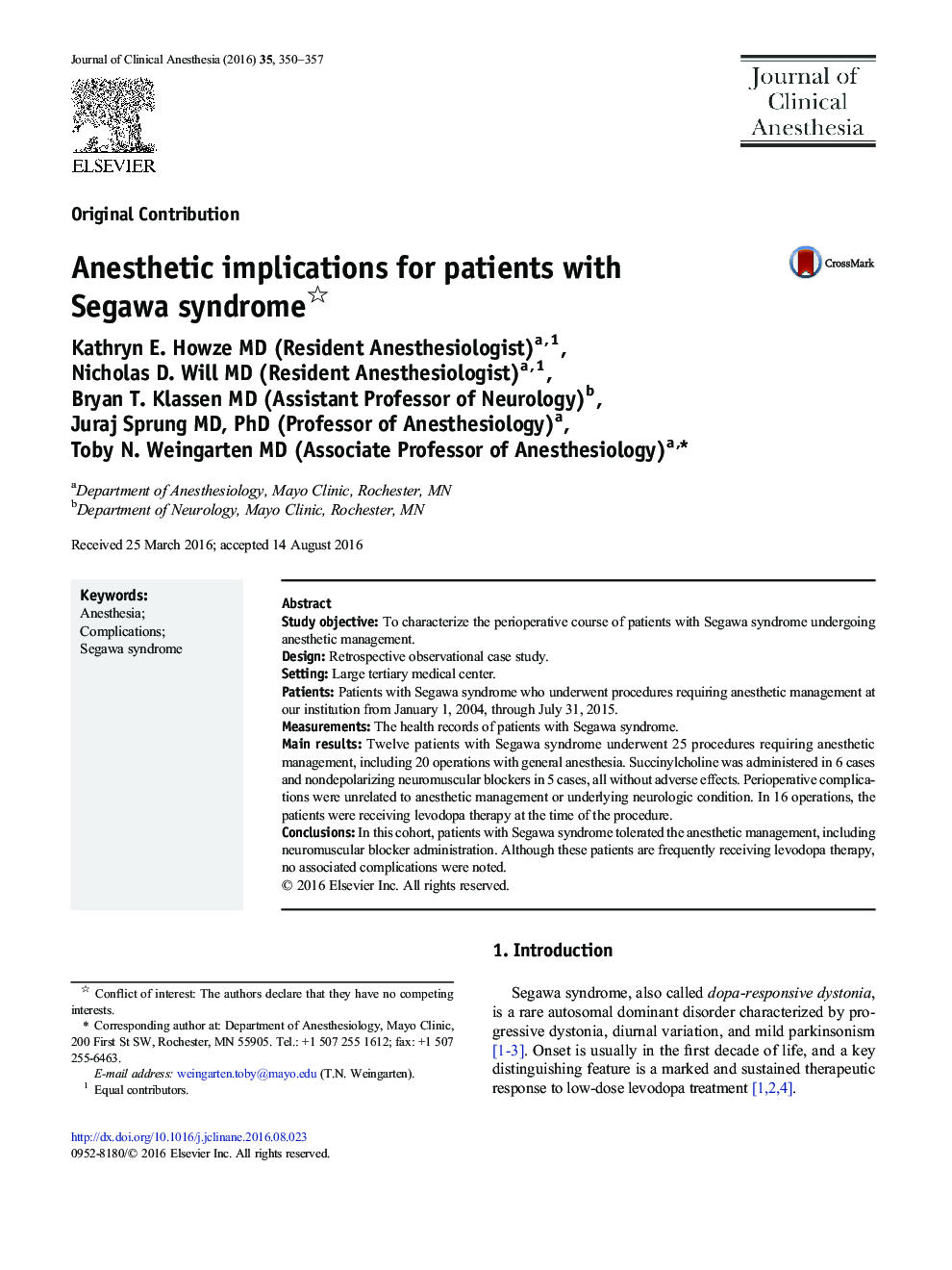| Article ID | Journal | Published Year | Pages | File Type |
|---|---|---|---|---|
| 5884317 | Journal of Clinical Anesthesia | 2016 | 8 Pages |
â¢Segawa syndrome presents with mild parkinsonism symptoms.â¢Many patients are prescribed low-dose levodopa therapy.â¢Bulbar muscle dysfunction and debility are common in these patients.â¢Limited evidence suggests normal response to muscle relaxants and anesthesia.
Study objectiveTo characterize the perioperative course of patients with Segawa syndrome undergoing anesthetic management.DesignRetrospective observational case study.SettingLarge tertiary medical center.PatientsPatients with Segawa syndrome who underwent procedures requiring anesthetic management at our institution from January 1, 2004, through July 31, 2015.MeasurementsThe health records of patients with Segawa syndrome.Main resultsTwelve patients with Segawa syndrome underwent 25 procedures requiring anesthetic management, including 20 operations with general anesthesia. Succinylcholine was administered in 6 cases and nondepolarizing neuromuscular blockers in 5 cases, all without adverse effects. Perioperative complications were unrelated to anesthetic management or underlying neurologic condition. In 16 operations, the patients were receiving levodopa therapy at the time of the procedure.ConclusionsIn this cohort, patients with Segawa syndrome tolerated the anesthetic management, including neuromuscular blocker administration. Although these patients are frequently receiving levodopa therapy, no associated complications were noted.
